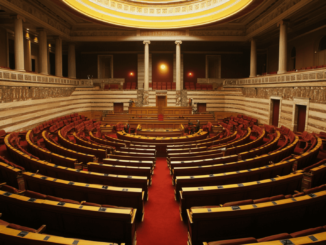
Revised GENIUS Act returns to Senate floor with additional Big Tech restrictions and increasing political tensions over Trump-related crypto activity.
Revised Bill Targets Big Tech Issuers
The U.S. Senate will vote Monday night on a revised version of the GENIUS Act, a bill seeking to establish the country’s first sweeping stablecoin rule. The initial vote last month came up short after various Senate Democrats raised concerns that the legislation could open up loopholes in regulation.
The updated bill includes language that would prevent tech monoliths such as Meta from making their own stablecoins without prior federal government approval. Congress members wish this addition to tamp down fears of Big Tech moving into financial services without regulators at the helm.
Progressive Concerns Remain
Regardless of the changes, some leftist senators are still against it. Senator Elizabeth Warren, an outspoken crypto skeptic, contends the bill still leaves “Trump-based crypto corruption” room to breathe. The reason for her criticism is that the Trump family has purportedly been linked to World Liberty Financial, whose dollar-pegged stablecoin called USD1 was recently opened.
Warren insists that the bill still does not provide sufficient protection against politically well-connected individuals abusing digital assets.
Key Provisions in the GENIUS Act
If passed, the GENIUS Act would:
- Demand stablecoin issuers hold reserves in secure assets like U.S. Treasury bills
- Assure anti-money-laundering compliance
- Place consumer protections against issuer bankruptcy first
Stablecoins like USDT from Tether and USDC from Circle are at the center of $3.3 trillion crypto trading market, acting as a bridge between the traditional finance world and digital assets.
Broader Crypto Debate Looms
Despite backing from some industry players and moderates, the bill’s fate is uncertain. Its opponents warn it may enable businesses to blur the lines between bank and tech. To crypto fans, though, the bill is a long-overdue guide to regulatory reason.
Though expected to move more smoothly through the House, the Senate vote will determine whether bipartisan agreement on crypto regulation is imminent—or if political infighting, especially over Trump’s crypto connections, will keep the sector on tenterhooks.


